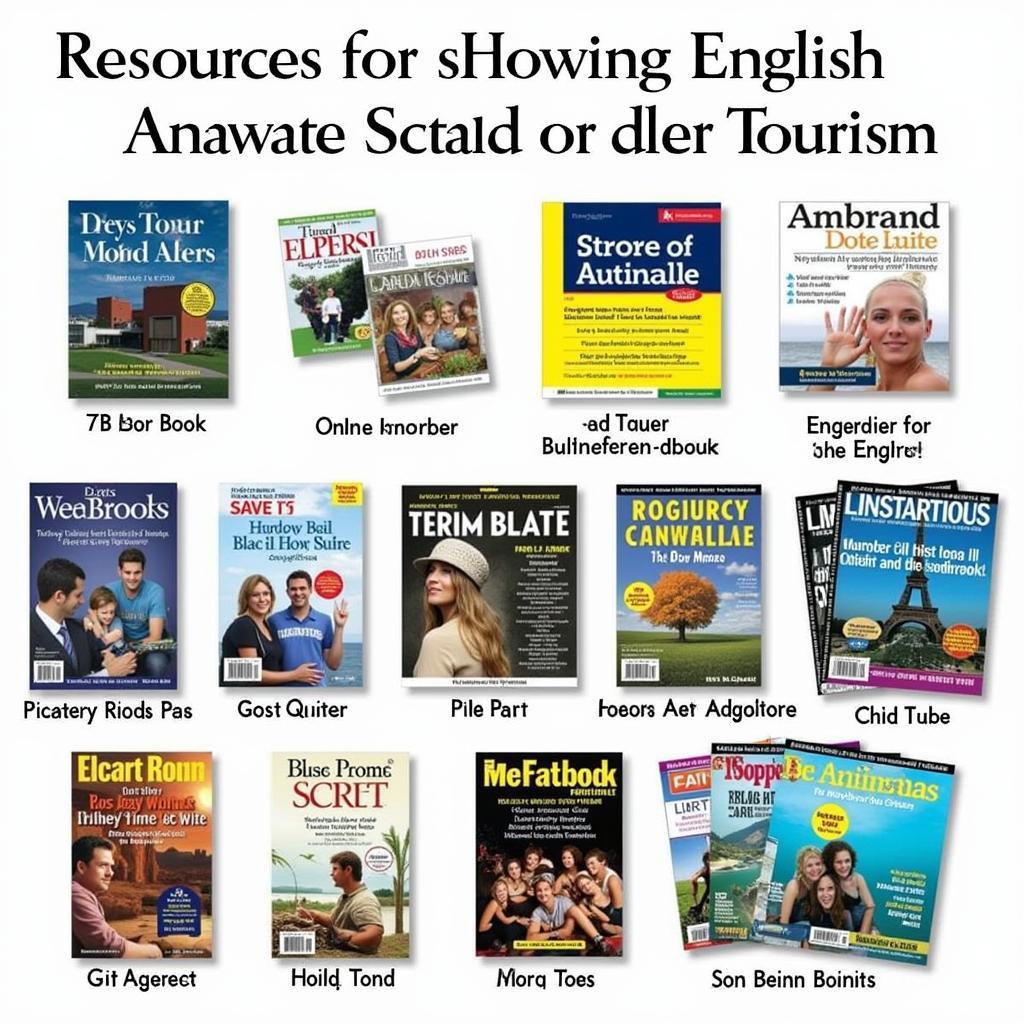Giỏ hàng hiện tại chưa có sản phẩm nào!

What is Tourism English?
Tourism English refers to the specific vocabulary, phrases, and communication styles used in the tourism industry. It encompasses a wide range of situations, from interacting with travelers at hotels and restaurants to guiding tours and providing travel information.
The Importance of Tourism English
In today’s interconnected world, tourism has become a global phenomenon. As more and more people travel internationally, the need for effective communication in English, widely considered the lingua franca of tourism, has become paramount.
For tourism professionals, a strong command of Tourism English is essential for:
- Providing excellent customer service: Clear and effective communication is crucial for understanding and meeting the needs of travelers from diverse backgrounds.
- Building rapport and trust: Using appropriate language and cultural sensitivity helps create positive interactions and fosters trust with tourists.
- Ensuring smooth operations: From booking flights to arranging transportation, accurate and efficient communication is vital for seamless travel experiences.
 Tourism Career Opportunities
Tourism Career Opportunities
Key Features of Tourism English
Tourism English is characterized by:
- Specialized vocabulary: It includes terms related to travel arrangements, accommodation, transportation, sightseeing, and cultural attractions.
- Focus on clarity and simplicity: Using concise language and avoiding jargon ensures that communication is easily understood by non-native speakers.
- Cultural sensitivity: Being mindful of cultural differences and customs is crucial for respectful and appropriate interactions with tourists from various backgrounds.
- Use of visual aids: Maps, brochures, and photographs can enhance communication, especially when explaining directions or describing tourist attractions.
Tips for Improving Your Tourism English
- Expand your vocabulary: Learn industry-specific terms and phrases related to different aspects of tourism.
- Practice speaking: Engage in conversations with native English speakers or language partners to improve your fluency and pronunciation.
- Immerse yourself in the language: Watch English-language travel documentaries, read travel blogs, and listen to podcasts about tourism.
- Seek out opportunities to interact with tourists: Volunteer at local tourist attractions, work part-time in a hotel or restaurant, or join language exchange programs.
 Resources for Learning Tourism English
Resources for Learning Tourism English
Conclusion
Mastering Tourism English is not just about learning words and phrases—it’s about developing the communication skills necessary to provide exceptional travel experiences. By embracing the unique aspects of this specialized language, you can open doors to exciting career opportunities and contribute to a more connected and culturally enriching tourism industry.
For those seeking guidance and support in their journey to learn Tourism English, our team at XE TẢI VAN is here to help. Contact us at 0372960696 or tuyet.sixt@gmail.com, or visit our office at 260 Cầu Giấy, Hà Nội. We offer personalized language learning solutions and resources tailored to your specific needs and goals.